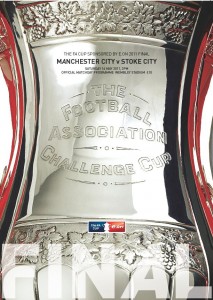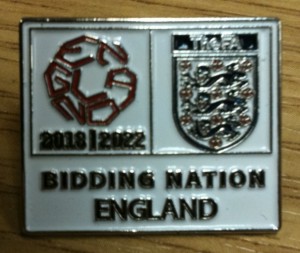Euro ramblings – Opening Night by Jade Craddock
 And so it begins. After a wait of over a year, Euro 2020 (yes, we’re sticking with that) finally kicked off last night in Rome as Italy took on Turkey in Group A, and for once, it didn’t disappoint. It had everything from Nessun Dorma to dodgy offsides to super-size subs benches. But as I sum up some random observations from the opening fixture, there’s only one place to start, remote-controlled cars, naturally…
And so it begins. After a wait of over a year, Euro 2020 (yes, we’re sticking with that) finally kicked off last night in Rome as Italy took on Turkey in Group A, and for once, it didn’t disappoint. It had everything from Nessun Dorma to dodgy offsides to super-size subs benches. But as I sum up some random observations from the opening fixture, there’s only one place to start, remote-controlled cars, naturally…
- Remote-controlled cars: I can’t say I’ve often watched the ref walk onto the pitch with the match ball and thought, do you know what this is missing – a bit of pizzazz, a bit of razzmatazz, a toy car. But clearly, UEFA didn’t feel the same. With so much else to do, they thought, let’s lighten the ref’s load and not make him carry the ball and whilst we’re at it let’s inject some showbiz into proceedings. Sadly, the whole thing felt more Toys’R’Us than glamorous as a miniature car whizzed almost to the centre circle, where the ref had to pick up the ball (surely, they could have found a way for the car to eject the ball for at least some wonderment) and then place it on the pitch before the car promptly whizzed back off. I can’t help feeling as if something had gone amiss, perhaps the spectacular jet-pack entrance they had planned went belly up in rehearsal and with just a couple of hours until kick-off and no plan B, the work experience lad was hastily sent out to the nearest Rome toy store, which was just about to drop the shutters for the day but not before offering up the choice of the final three items in store: roller skates, stilts or a remote-controlled car. My vote would have been the stilts, but the groundstaff at the Stadio Olimpico would have most likely kiboshed that, so the car was duly chosen. Luckily, the driver was a pro and injected as much entertainment as is possible with what was essentially an oversized toy, and I guess we just have to be grateful that it wasn’t a rogue driver at the helm who attempted to take out the opposition’s number 9 – although that may have added more excitement to proceedings. It remains to be seen whether this was a one-off as part of opening ceremony spectacular, but if not, perhaps we can look forward to a cannon shooting the ball to the ref in the Wales v Switzerland game, the ball parachuting in for Denmark v Finland or being dropped from above from a hot-air balloon for Belgium v Russia – the possibilities are endless, though I suspect we’ll be seeing a lot more of that toy car – UEFA and the sponsors have got to get their money’s worth after all.
- First goal of the tournament: With the ball safely delivered by the remote-controlled car, thank goodness – you can’t trust those pesky refs to do the job – it was on to the business at hand with the opening game of the tournament and the age-old battle to score the opening goal. At half-time, viewers may have been forgiven for wondering if after a year of waiting this was going to be the proverbial damp squib, but alas after 53 minutes, deadlock was broken, and one man wrote himself into history, joining luminaries such as Rummenigge, Platini, Shearer and Lewandowski in scoring the tournament’s opening goal. Sadly, Turkey’s Merih Demiral didn’t only just score the first goal of Euro 2020, his unfortunate own goal granted him the dubious honour of being the only player to ever score an own goal as the opening goal in a European Championship. If nothing else, he’s secured his place in quizbook history, but I suspect, apart from a few fervent fans who can name every Euro opening scorer from Milan Galic in 1960 to Olivier Giroud in 2016, Merih Demiral’s contribution will soon be forgotten, if not already, thanks to the later efforts of Ciro Immobile and Lorenzo Insigne, and perhaps even a remote-controlled car.
- Italy on the offensive: Historically, we’ve come to laud Italy on all things defensive, but whilst their opening showing secured the typical clean sheet, their three-goal triumph secured the Azzurri the largest margin of victory in an opening match in Euros history. Indeed, whilst other opening matches have been higher scoring, with France’s 4-5 defeat to Yugoslavia in 1960 taking top billing, opening matches have tended to be tight affairs, not least 1968 when after a 0-0 draw with the Soviet Union, Italy won on a coin toss – as they also did in the semi-finals against the same opposition. Who needs remote-controlled cars when you can have a coin toss deciding matches? Whoever decided heads or tails in that 1968 Italy team surely deserves some kind of honour, especially as Italy went on to win the whole tournament – without the aid of a coin toss in the final, although it did take a replay to separate the Azzurri from their Yugoslavian contenders. Anyway, I digress, and back to 2021 (or Euro 2020, as it is), and Italy’s 3-0 victory over a young Turkish side made some sit up and take note. It has to be said that Turkey weren’t really at the races and lacked any real energy or pace, but Italy’s display was dominant against the opposition. Could they repeat their only other Euro victory in 1968? Somebody find the man who called Italy’s 1968 coin tosses, he may just come in handy if it comes to choosing ends in a penalty shootout.
- No Buffon, no problem?: It’s the year 2000, Billie Piper is top of the charts, Maximus Decimus Meridius had been unleased on the big screen and Erling Haaland has just been born, and it is the last Euros before Gianluigi Buffon takes the helm. Having featured throughout the qualifying campaign, Buffon broke his hand prior to the tournament and missed out on Euro 2000. By 2004, however, Buffon was well and truly installed as Italy’s number one and there he would stay, having assumed the captain’s armband for Euro 2004, until Euro 2016 – an incredible five consecutive tournaments. The prospect of Buffon retiring was unthinkable and yet he confirmed that Euro 2016 was to be his last. Who on earth could ever replace this literal giant of Italian footballer – a player who has not only won innumerable Serie A, Coppa Italia and Supercoppa Italianas but also twelve Serie A Goalkeeper of the Year awards and the Golden Glove in the 2006 World Cup when his team were victorious? Buffon’s are amongst the biggest gloves to fill. Step up Gianluigi Donnarumma – a man, nay a boy, who made his debut for AC Milan, one of the biggest clubs in world football, at the age of 16. Indeed, Donnarumma took the honour of being the youngest ever goalkeeper to feature for Italy from Buffon himself at the mere age of 17 years and 189 days. Still just 22, Euro 2021 is Donnarumma’s first major international competition and whilst there was little to judge from in his opening match, he’s certainly one to watch
- Pundit wars: And talking of ones to watch, after his successful stint on BBC for the 2018 World Cup, Cesc Fabregas returned as part of the punditry team for the Euros opener and proved himself to be as valuable an asset off the pitch as on it. One of the most intelligent players of the modern era, he brings that football intelligence to his analysis. Well-spoken, perceptive and often spot on, he adds to a strong line-up of BBC Euro 2020 pundits that includes the likes of Micah Richards, Karen Carney and Eric Abidal. And whilst Cesc is certainly a high-class addition, the coup of the season may just be ITV’s potential pairing of Roy Keane and Patrick Vieira. What better way to add some entertainment to a 0-0 draw than Keane and Vieira sharing a studio?

 Two days on the FIFA decision on Thursday still hurts and continues to make headlines. The debate about the rights and wrongs will rumble on. In looking to close out what has occurred this week, the words of acting FA Chairman Roger Burden possibly best sum up the frustrations of the England Bid Team.
Two days on the FIFA decision on Thursday still hurts and continues to make headlines. The debate about the rights and wrongs will rumble on. In looking to close out what has occurred this week, the words of acting FA Chairman Roger Burden possibly best sum up the frustrations of the England Bid Team.